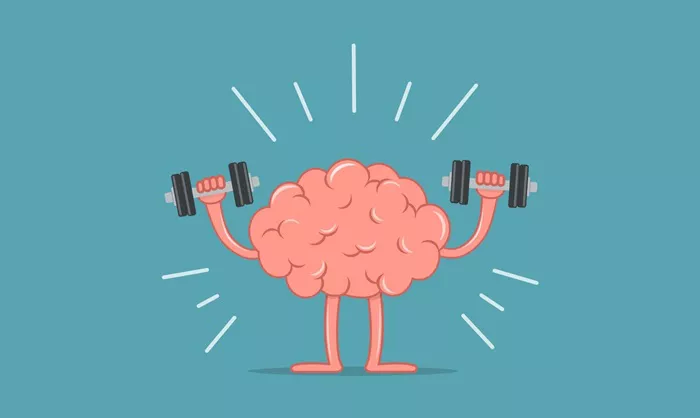In our fast-paced world, the importance of physical exercise often focuses on its physical benefits—weight management, cardiovascular health, and muscular strength. However, the impact of exercise extends far beyond physical fitness; it plays a crucial role in mental health and well-being. This article delves into ten significant mental benefits of exercise, offering a comprehensive exploration of how physical activity positively influences our cognitive and emotional states.
1. Enhanced Mood and Reduced Symptoms of Depression
One of the most immediate mental benefits of exercise is its ability to improve mood and alleviate symptoms of depression. Engaging in physical activity triggers the release of endorphins, often referred to as “feel-good” hormones. These endorphins interact with the receptors in the brain to reduce the perception of pain and induce a positive feeling in the body. Regular exercise has been shown to lower levels of depression and anxiety, as it helps to regulate mood swings and enhance overall emotional stability.
Scientific Evidence: Numerous studies have demonstrated that exercise can be as effective as antidepressant medications for some individuals. For instance, a study published in JAMA Psychiatry found that individuals who engaged in regular physical activity experienced a significant reduction in depressive symptoms compared to those who remained sedentary.
2. Improved Cognitive Function and Memory
Exercise is not only beneficial for emotional health but also for cognitive function. Physical activity enhances brain health by increasing blood flow to the brain, which in turn promotes the growth of new brain cells and improves overall brain performance. Regular exercise has been linked to improved memory, cognitive function, and a lower risk of cognitive decline as we age.
Scientific Evidence: Research published in the journal “Nature Reviews Neuroscience” highlights that aerobic exercise, such as running or cycling, stimulates the production of brain-derived neurotrophic factor (BDNF), a protein associated with cognitive function and memory. Higher levels of BDNF have been correlated with improved learning and memory abilities.
3. Reduced Stress and Anxiety Levels
Exercise acts as a natural stress reliever by reducing the levels of stress hormones, such as cortisol, in the body. Physical activity also promotes the production of endorphins and other neurotransmitters that help to combat anxiety and stress. Engaging in regular exercise can help individuals manage stress more effectively, leading to a more balanced and relaxed state of mind.
Scientific Evidence: A meta-analysis published in the “Journal of Clinical Psychiatry” found that exercise significantly reduces anxiety levels and improves overall well-being. The study concluded that even moderate exercise, such as walking or yoga, can have a profound impact on reducing anxiety symptoms.
4. Enhanced Sleep Quality
Regular physical activity has been shown to improve sleep quality and help manage insomnia. Exercise promotes the production of melatonin, a hormone that regulates sleep-wake cycles, and helps to establish a consistent sleep pattern. By incorporating exercise into your daily routine, you can experience deeper and more restorative sleep.
Scientific Evidence: A study published in the “American Journal of Lifestyle Medicine” found that individuals who engaged in regular exercise reported improved sleep quality and reduced symptoms of insomnia. The study concluded that exercise, particularly aerobic activity, can be an effective strategy for improving sleep patterns.
See Also: Embracing Exercise Snacking: A Path to Healthy Aging Without the Gym
5. Increased Self-Esteem and Confidence
Exercise can have a profound effect on self-esteem and confidence. As individuals achieve fitness goals and witness physical improvements, their self-perception and body image often improve. This boost in self-esteem can translate into greater confidence in various aspects of life, including social interactions and personal achievements.
Scientific Evidence: Research published in the “Journal of Sport and Exercise Psychology” found that individuals who engaged in regular physical activity reported higher levels of self-esteem and body satisfaction. The study highlighted that exercise contributes to a positive self-image and enhances overall self-confidence.
6. Enhanced Emotional Resilience
Physical activity helps to build emotional resilience by teaching individuals how to cope with challenges and setbacks. The discipline and perseverance required to maintain an exercise routine can translate into greater emotional strength and resilience in other areas of life. Exercise can provide a healthy outlet for managing stress and overcoming obstacles.
Scientific Evidence: A study published in the “Journal of Behavioral Medicine” found that regular exercise improves emotional resilience by increasing the ability to manage stress and adapt to challenging situations. The study highlighted that exercise promotes a positive mindset and enhances overall emotional well-being.
7. Improved Focus and Concentration
Regular physical activity can enhance focus and concentration by improving blood flow to the brain and increasing mental clarity. Exercise has been shown to enhance cognitive function, including attention, concentration, and decision-making abilities. Incorporating exercise into your daily routine can lead to better productivity and performance in various tasks.
Scientific Evidence: Research published in the “Journal of Clinical Psychiatry” found that physical activity improves cognitive function and attention span. The study concluded that regular exercise enhances mental clarity and concentration, leading to better overall cognitive performance.
8. Social Interaction and Connection
Exercise often involves social interaction, whether it’s through group fitness classes, sports teams, or recreational activities. Engaging in physical activities with others can provide a sense of community and support, which contributes to improved mental well-being. Social interaction and connection play a crucial role in reducing feelings of loneliness and isolation.
Scientific Evidence: A study published in the “Journal of Social and Clinical Psychology” found that individuals who engaged in group exercise reported higher levels of social support and reduced feelings of loneliness. The study highlighted that social interaction through exercise contributes to improved mental health and overall well-being.
9. Boosted Creativity and Problem-Solving Skills
Physical activity has been linked to increased creativity and enhanced problem-solving skills. Exercise stimulates brain function and promotes a state of mental relaxation, which can lead to improved creative thinking and innovative solutions. Engaging in regular physical activity can help individuals approach problems from different perspectives and generate new ideas.
Scientific Evidence: Research published in the “Journal of Experimental Psychology” found that exercise enhances creative thinking and problem-solving abilities. The study highlighted that physical activity promotes cognitive flexibility and improves overall creative performance.
10. Long-Term Mental Health Benefits
The mental benefits of exercise extend beyond immediate effects and contribute to long-term mental health and well-being. Regular physical activity has been shown to reduce the risk of developing mental health disorders, such as anxiety and depression, and promote overall emotional stability. Incorporating exercise into your lifestyle can lead to sustained improvements in mental health over time.
Scientific Evidence: A study published in the “American Journal of Preventive Medicine” found that individuals who engaged in regular physical activity experienced long-term mental health benefits, including reduced risk of developing mental health disorders. The study concluded that exercise contributes to overall emotional well-being and long-term mental health.
Conclusion
The mental benefits of exercise are vast and multifaceted, ranging from enhanced mood and cognitive function to improved stress management and social connection. By incorporating regular physical activity into your routine, you can unlock a wealth of mental health benefits that contribute to a healthier and more balanced life. Whether you’re seeking to alleviate stress, boost self-esteem, or enhance cognitive function, exercise offers a powerful and natural solution for improving mental well-being. Embrace the transformative power of exercise and experience the positive impact it can have on your mind and life.
[inline_related_posts title=”You Might Be Interested In” title_align=”left” style=”list” number=”6″ align=”none” ids=”10262,9243,8598″ by=”categories” orderby=”rand” order=”DESC” hide_thumb=”no” thumb_right=”no” views=”no” date=”yes” grid_columns=”2″ post_type=”” tax=””]

































